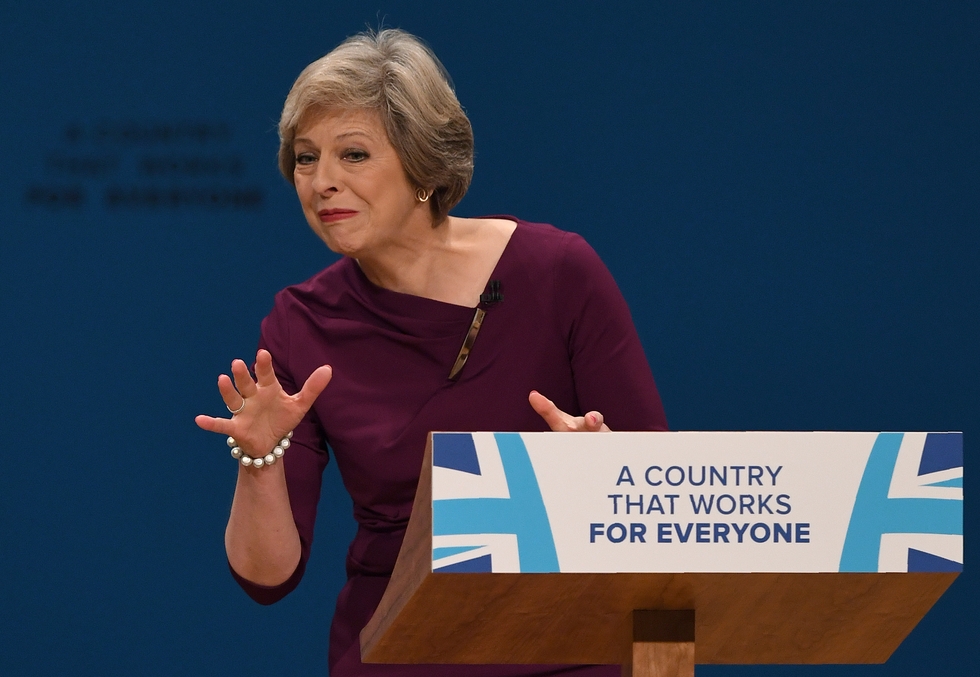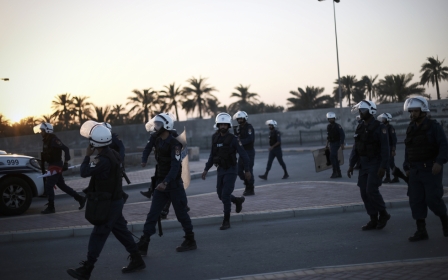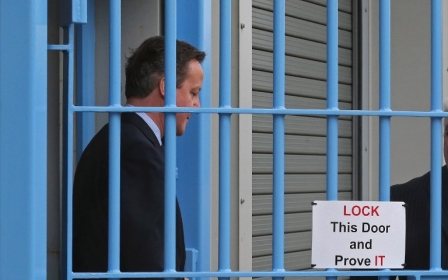PM slams 'left-wing' human rights claims against UK troops

Theresa May has slammed "left-wing human rights lawyers" looking to sue British forces, promising legislation to prevent cases against British armed forces personnel in Iraq.
Speaking at the Conservative Party conference in Birmingham, the recently annointed British prime minister re-emphasised her early promise that British forces who had served in Iraq and Afghanistan would no longer be subject to legal cases over alleged human rights abuses.
She promised legislation to protect "the bravest of the brave: the men and women of our armed forces" as part of her keynote speech at the conference on Wednesday.
Last week, the Conservatives unveiled the new legislation which comes in the wake of numerous cases brought against British soldiers by private law firms.
The new measures will specifically exempt soldiers from two articles of the European Convention on Human Rights - Article 2, the right to life, and Article 5, the right to liberty - which right-wing commentators claim have been exploited by lawyers to launch vexacious claims against British personnel.
"Our troops, our men and women of our armed forces go out there and put their lives on the line in order to defend us," she told Sky News on Tuesday.
"They do things that most people wouldn't be willing to do in terms of that, in terms of going out and potentially paying the ultimate sacrifice for us."
Among the cases currently being heard in UK courts is that of Abd Ali Hameed al-Waheed, an Iraqi who alleges he was abused by British soldiers after his house in Basra was raided in 2007.
He claims to have been "subject to sensory deprivation, held in solitary confinement and denied adequate shelter, bedding, food and water."
Although the Ministry of Defence maintains that he received the injuries from Muqtada al-Sadr's Mahdi Army militia, Waheed is now seeking compensation from the UK.
His case is one of three test cases that will determine whether the UK courts will hear a further 600 similar claims.
In August, it was announced that Public Interest Lawyers - a law firm which has heavily focused on bringing cases against British soldiers - would be closed down after it was denied legal aid funding for breaching contractual requirements required to qualify for the funding.
The firm represented complainants in the £31m al-Sweady inquiry into a 2004 battle in Basra, in which it was claimed that British soldiers had killed 20 unarmed civilians - claims that a court eventually concluded to be "unfounded".
Following the announcement, the British defence secretary, Michael Fallon, said the firm's closure was the "right outcome for our armed forces".
Brexit plans
The prime minister reiterated the commitment to shield UK troops as she continued to attempt to outline the UK's political future following the groundbreaking vote by the country to "Brexit" the European Union on 23 June 2016.
May said she wanted a Brexit deal which offered "maximum freedom" to operate in Europe's single market but also emphasised she wanted control over immigration.
The demands are contradictory for European leaders, who have emphasised that access to the single market is dependent on allowing free movement of workers.
"I want to give British companies the maximum freedom to trade with and operate within the single market and let European businesses do the same thing here," May told the Conservative party conference.
But she added: "We are not leaving the European Union only to give up control of immigration all over again and we're not leaving only to return to the jurisdiction of the European Court of Justice."
May told delegates in Birmingham, central England on Sunday that she would trigger negotiations with Brussels to leave the EU before the end of March, opening the door for a possible withdrawal in early 2019.
The announcement sent the pound plunging against the euro and dollar but stocks have soared since a weaker pound has helped boost British exporters.
"It's going to be a tough negotiation. It will require some give and take," May said on Wednesday.
While she has given little away about her negotiating strategy, her government is seen by analysts as moving towards a "hard" Brexit, which could involve limited, if any, access to Europe's single market in return for more control over immigration
New MEE newsletter: Jerusalem Dispatch
Sign up to get the latest insights and analysis on Israel-Palestine, alongside Turkey Unpacked and other MEE newsletters
Middle East Eye delivers independent and unrivalled coverage and analysis of the Middle East, North Africa and beyond. To learn more about republishing this content and the associated fees, please fill out this form. More about MEE can be found here.




